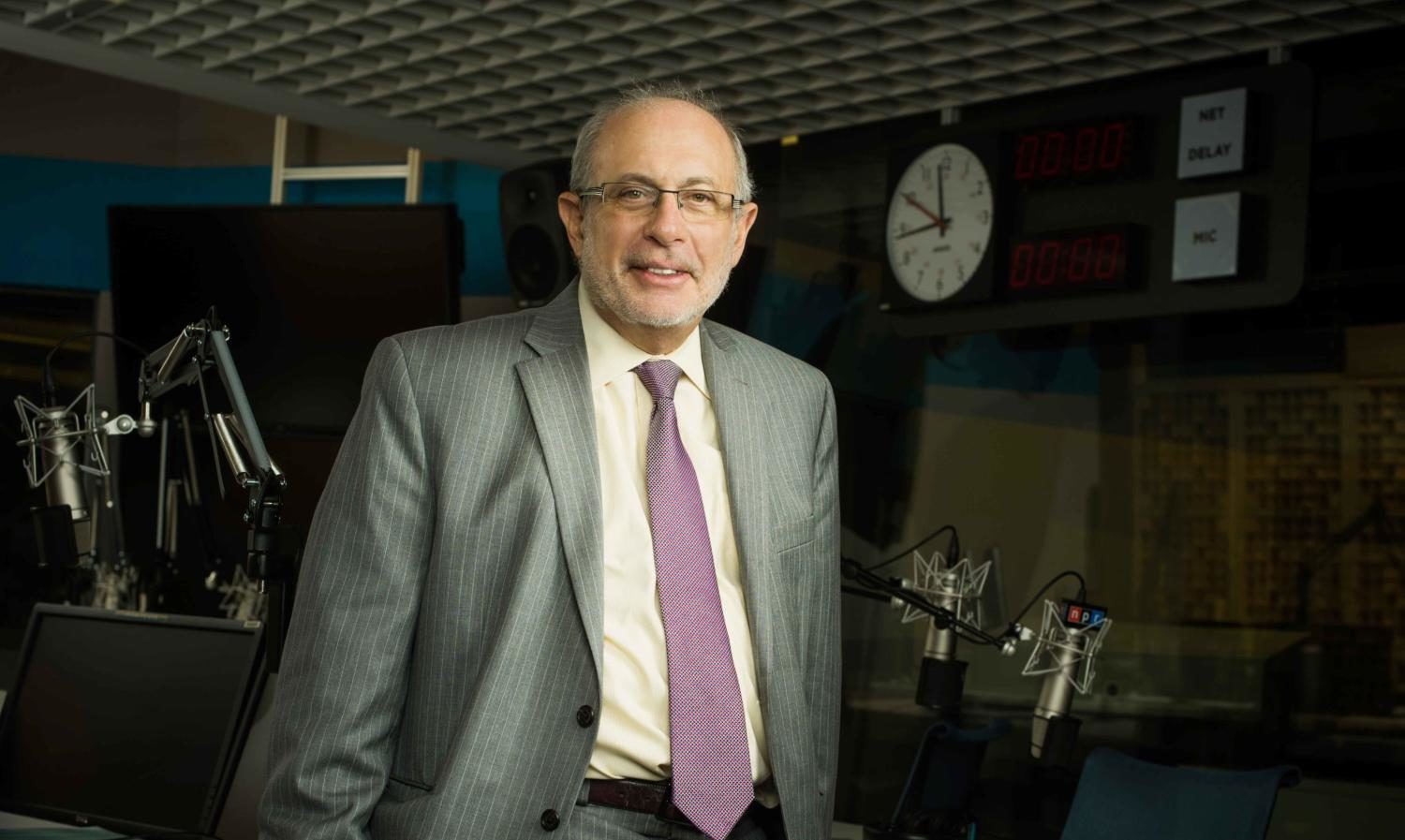Robert Siegel departs from NPR
Will network try to replace post on ‘All Things Considered’ with more diversity behind the mic?
May 1, 2017
Robert Siegel announced that he will be leaving his post at NPR’s “All Things Considered,” one of the networks flagship drive-time newsmagazine. But with his departure, which isn’t set to take place until January of next year, a big question arises: who is going to be added to the NPR’s newsmagazine lineup?
Siegel, 69, has held the post at the show for 30 years, and is the longest serving anchor currently behind the mic at “All Things Considered”—the most listened to afternoon drive-time radio news show in the nation—a show he hosts with Ari Shapiro, Kelly McEvers and Audie Cornish.
Adam Ragusea, journalist in residence at Mercer University and host of podcast “The Pub,” a show divulging into the world of public media, said he was “not surprised” by the news, due to Siegel’s age and number of years working at NPR.
However, Ragusea conceded that if anyone was going to slump over one day behind the mic, it seemed like Siegel would be one of those people.
“He seems like one of those guys that if anyone was going to keel over and die on the job, it was going to be Robert Siegel,” Ragusea said. “And I wondered sometimes if he was going to be the kind of guy who really never stepped away, but he’s stepping away—and I think he is right to do that.”
And by “right to do that,” Ragusea also means that it may be right for the network, too—because Ragusea believes it may be critical for survival of “All Things Considered” and NPR as a whole.
In his view, Ragusea views this critical opening as an opportunity to reach communities that NPR needs to grow to survive.
The audience at All Things Considered “has always been baby boomers,” Ragusea said. Painting a very dire picture, Ragusea asserts that it “will die with Baby Boomers,” too.
Ragusea thinks that it is time for a “new voices” to hit the “All Things Considered” airwaves, and in particular someone non-white.
“It’s not just about what’s right to do, it’s about strategic planning for NPR. The grey haired, straight white guy is not a growing demographic, and they really need to do things to reach out to those new kind of people,” Ragusea said. “They aren’t just being diverse just because it is the right thing to do, they are doing it because it is the necessary thing to do.”
If the past is any indication, we will likely see them do what Ragusea says is necessary. NPR’s on-air talent is incredibly diverse, and an article I remember reading noted that Siegel was the only straight white guy to be behind the mic at “All Things Considered.”
But only a few days before Siegel announced his departure, a report from NPR’s ombudsman showed that diversity in the newsroom continues to have room for improvement.
The data in the ombudsman’s post showed that NPR’s newsroom staff is 75 percent white, which is behind some other national news outlets and ahead of others.
And while Ragusea thinks radio and has had its “heyday” and is on its decline, he conceded that many of those at NPR will most certainly “strenuously disagree” on the death of NPR’s drive-time news shows. But he also noted that they have reason to think that they will survive, especially, because the network has seen a large ratings boost this year.
In an email to me, Isabel Lara, Senior Director of Media Relations at NPR, objected to Ragusea’s death prophecy, arguing that the doomsday tick-tock has been a constant in the radio industry, and so far it’s only been words.
This Fall, Lara said, NPR’s drive-time news magazines both had “their largest weekly audience,” bringing in 14.4 million listeners for “All Things Considered” and 14.65 million for “Morning Edition.”
Meanwhile, NPR also saw a 12 percent jump in people in the age range of 18-24 and 26 percent in the 25-34 demographic, data Lara provided showed.
“[Baby] Boomers continue to be an important part of our audience but as the numbers above show, NPR appeals to curious people of all ages,” Lara said. “[Generation] Xers and Millennials who grew up listening to the radio in their parent’s cars or were introduced to NPR in college have continued to listen and taken their taste for public radio storytelling on to additional platforms like podcasting or streaming.”
The iTunes top-charts is inhabited with a plethora of NPR programs, which attracts a much younger demographic, but the broadcast aspect of NPR’s business does seem to be stronger than ever. But this doesn’t mean Ragusea isn’t right.
Maybe NPR isn’t going to succumb to the changing of the times, but their effort to present diverse voices on air—race, or age, or otherwise—could be a factor in their unprecedented growth this year.
With the new “All Things Considered” positioning opening up, NPR may try to find another person to help show their efforts to diversify those integral to bringing millions their news—or they may not!
Ragusea noted that the hosts of “All Things Considered” are like Supreme Court justices. They often become a fixture of the airwave, and tend to not turn over frequently. Those behind the microphone are the face of NPR, and in the discussion over Siegel’s replacement, All Things will be Considered.





















![Movie poster for '[Rec]" (2007).](https://www.lionnewspaper.com/wp-content/uploads/2023/04/rec-640x900.jpg)



